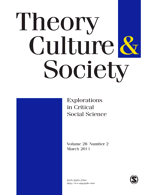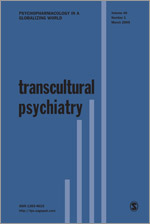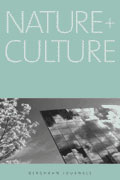Medical anthropology studies "human health and disease, health care systems, and biocultural adaptation". It views humans from multidimensional and ecological perspectives. It is one of the most highly developed areas of anthropology and applied anthropology, and is a subfield of social and cultural anthropology that examines the ways in which culture and society are organized around or influenced by issues of health, health care and related issues.
Arthur Michael Kleinman is an American psychiatrist, social anthropologist and a professor of medical anthropology, psychiatry and global health and social medicine at Harvard University.
In medicine and medical anthropology, a culture-bound syndrome, culture-specific syndrome, or folk illness is a combination of psychiatric and somatic symptoms that are considered to be a recognizable disease only within a specific society or culture. There are no known objective biochemical or structural alterations of body organs or functions, and the disease is not recognized in other cultures. The term culture-bound syndrome was included in the fourth version of the Diagnostic and Statistical Manual of Mental Disorders which also includes a list of the most common culture-bound conditions. Its counterpart in the framework of ICD-10 is the culture-specific disorders defined in Annex 2 of the Diagnostic criteria for research.
Psychological anthropology is an interdisciplinary subfield of anthropology that studies the interaction of cultural and mental processes. This subfield tends to focus on ways in which humans' development and enculturation within a particular cultural group—with its own history, language, practices, and conceptual categories—shape processes of human cognition, emotion, perception, motivation, and mental health. It also examines how the understanding of cognition, emotion, motivation, and similar psychological processes inform or constrain our models of cultural and social processes. Each school within psychological anthropology has its own approach.
Cross-cultural psychiatry is a branch of psychiatry concerned with the cultural context of mental disorders and the challenges of addressing ethnic diversity in psychiatric services. It emerged as a coherent field from several strands of work, including surveys of the prevalence and form of disorders in different cultures or countries; the study of migrant populations and ethnic diversity within countries; and analysis of psychiatry itself as a cultural product.
Richard Allan Shweder is an American cultural anthropologist and a figure in cultural psychology. He is currently Harold H. Swift Distinguished Service Professor of Human Development in the Department of Comparative Human Development at the University of Chicago.
Nancy Scheper-Hughes is an anthropologist, educator, and author. She is the Chancellor's Professor Emerita of Anthropology and the director and co-founder of the PhD program in Critical Medical Anthropology at the University of California, Berkeley. She is known for her writing on the anthropology of the body, hunger, illness, medicine, motherhood, psychiatry, psychosis, social suffering, violence and genocide, death squads, and human trafficking.
Linda L. Barnes is an American medical anthropologist, a professor of family medicine at Boston University School of Medicine, and in the Graduate Division of Religious Studies at Boston University. Her research specialties are the social and cultural history of Western responses to Chinese healing traditions, and the interdisciplinary study of cultural, religious, and therapeutic pluralism in the United States. She has been regularly cited as an authority in the use of religiously based therapeutic traditions.
Grisi siknis is a contagious, culture-bound syndrome that occurs predominantly among the Miskito people of eastern Central America, and affects mainly young women. It is also known as "grisi munaia", "Chipil siknis", and "Nil siknis". More recently, cases occurring amongst people of Spanish descent have also been reported.

Security Dialogue is a peer-reviewed academic journal that publishes scholarly articles which combine contemporary theoretical analysis with challenges to public policy across a wide-ranging field of security studies. The journal is owned by the Peace Research Institute Oslo which also hosts the editorial office. As of 1 October 2015 Mark B. Salter is the editor-in-chief. Marit Moe-Pryce has been the managing editor of the journal since 2004. Current associate editors are Emily Gilbert, Jairus V. Grove, Jana Hönke, Doerthe Rosenow, Anna Stavrianakis, and Maria Stern.

Theory, Culture & Society is a peer-reviewed academic journal that was established in 1982 and covers sociology, cultural, and social theory. The journal aims to work "across the borderlines between sociology and cultural studies, the social sciences and the humanities and has moved towards a broader transdisciplinary frame of reference." It is published by SAGE Publications. The editor-in-chief is Mike Featherstone. The journal is also linked to the journal Body & Society and has its own book series featuring the work of theorists.

Transcultural Psychiatry is a peer-reviewed academic journal that publishes papers in the fields of cultural psychiatry, psychology and anthropology. The journal's editor-in-chief is Laurence J. Kirmayer. The Associate Editors are Renato Alarcón, Roland Littlewood and Leslie Swartz. It has been in publication since 1964 and is currently published by SAGE Publications on behalf of the Division of Social and Transcultural Psychiatry of McGill University. It is the official journal of the World Psychiatric Association Transcultural Psychiatry Section and is also published in association with the Society for the Study of Psychiatry and Culture.

The Anthropological Journal of European Cultures is a biannual peer-reviewed academic journal that was established in 1990 as the Anthropological Yearbook of European Cultures. It obtained its current title in 2008 when Berghahn Books took over as the publisher. The journal covers research addressing the cultural and social changes of the societies in contemporary Europe. The editors-in-chief are Aleksandar Bošković (UFRN), Natal and Institute of Archaeology, Belgrade, and Jennifer Cash (Nanyang Technological University, Singapore.

Nature and Culture is a peer-reviewed academic journal published by Berghahn Books that covers the historical and contemporary relationships that societies have with nature. The editors-in-chief are Sing C. Chew and Matthias Gross. The publication themes include cultural reactions and conceptions of nature, ecological restoration, ecological time, as well as political and socio-technical arrangements of landscapes. Some new directions of the journal include environmental technologies and renewable energy cultures.
William Abel Caudill was an American applied medical anthropologist. His work centered on psychiatry, and the influence of culture on personality. Caudill was especially interested in diagnosis and treatment of mental issues in Japan. Caudill was the first to identify the field of medical anthropology, and was active in organizing it during its formative years.
Photography & Culture is a quarterly peer-reviewed academic journal, published by Taylor & Francis. It was founded in 2008 by Val Williams and was initially published triannually by Berg Publishers and then by Bloomsbury Publishing until 2015. Photography & Culture’s editors-in-chief are Erina Duganne, Sarah Parsons, Gil Pasternak, and Yunchang Yang.
Byron Joseph Good is an American medical anthropologist primarily studying mental illness. He is currently on the faculty of Harvard University, where he is Professor of Medical Anthropology at Harvard Medical School and Professor of Cultural Anthropology in the Department of Anthropology.

Seth M. Holmes is Chancellor's Professor of Environmental Science, Policy and Management and Medical Anthropology at the University of California Berkeley. He also serves as founder and co-chair of the Berkeley Center for Social Medicine, co-director of the MD/Ph.D. Track in Medical Anthropology coordinated between UC Berkeley and UCSF. A cultural anthropologist and physician, Holmes focuses on social inequalities, immigration, ethnic hierarchies, health and health care. His work has provided a particularly strong ethnographic critique of behaviorism in medicine.
The Journal of Field Archaeology is a peer-reviewed academic journal that covers archaeological fieldwork from any part of the world. It is published by Routledge on behalf of Boston University and its editor-in-chief is Christina Luke.
Janis Hunter Jenkins is an American Psychological and Medical Anthropologist. She is Distinguished Professor at the University of California San Diego, on faculty in the Departments of Anthropology, Psychiatry, and the Global Health Program. She is Director for the Center for Global Mental Health at UCSD.





